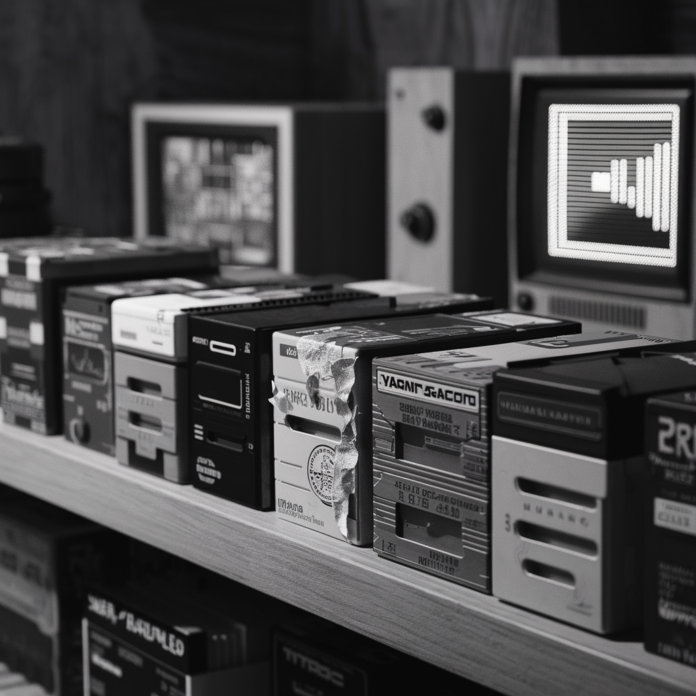Introduction
Welcome to TheGameArchives.com, your premier digital library dedicated to the preservation and celebration of video game history. In an era where technology evolves rapidly and older games risk fading into obscurity, our mission is to safeguard the artistry, innovation, and cultural impact of gaming’s most iconic titles. From the golden age of arcades to the modern era of photorealistic graphics, this platform serves as a comprehensive archive for gamers, historians, and developers alike. Join us as we explore the milestones, hidden gems, and technological breakthroughs that have shaped the gaming landscape, ensuring that these digital treasures remain accessible for future generations.
Headings & Their Explanations
1. The Importance of Game Preservation: Why Archives Matter
Video games are more than just entertainment—they are historical artifacts that reflect technological progress, artistic expression, and cultural shifts. This section delves into the challenges of game preservation, from hardware degradation and software obsolescence to legal barriers like licensing and copyright. We’ll highlight the efforts of organizations such as the Video Game History Foundation and the Internet Archive, which work tirelessly to ensure that classic games remain playable and appreciated for years to come.
2. Lost & Forgotten Gems: Rescuing Games from Oblivion
Countless games, particularly those from the early days of home computers and obscure consoles, have disappeared from public memory. Here, we spotlight rare and underappreciated titles that deserve recognition, such as cult classics, canceled prototypes, and region-exclusive releases. Through digital archiving and fan-driven restoration projects, many of these forgotten masterpieces are being revived, allowing new audiences to experience what might have otherwise been lost forever.
3. Emulation vs. Remasters: The Debate Over Game Accessibility
One of the biggest challenges in game preservation is making older titles available on modern hardware. This section examines the pros and cons of emulation (software that mimics old consoles) versus official remasters and remakes. While emulation provides broader access to legacy games, it often exists in a legal gray area. On the other hand, remasters like Shadow of the Colossus and Resident Evil 2 offer polished experiences but sometimes alter the original vision. We’ll explore how both methods contribute to keeping gaming history alive.
4. The Role of Fan Communities in Game Preservation
Passionate fans play a crucial role in archiving gaming history through ROM hacking, fan translations, and modding. Communities dedicated to restoring lost content—such as unreleased levels, beta versions, and fan-made patches—ensure that even incomplete or region-locked games can be enjoyed worldwide. We’ll showcase inspiring examples of fan projects that have resurrected games like EarthBound’s unreleased sequels and StarCraft: Ghost, proving that dedicated players can be just as important as official preservation efforts.
5. The Future of Game Archives: Digital Libraries & Cloud Gaming
As physical media declines and digital storefronts shut down (like the Wii Shop Channel and PlayStation Vita store), the risk of games vanishing increases. This section discusses how cloud gaming, subscription services like Xbox Game Pass, and digital libraries such as GOG.com are shaping the future of game preservation. While these platforms offer convenience, they also raise concerns about ownership and long-term accessibility—what happens if a service shuts down? We’ll analyze the potential solutions to ensure games remain available for future generations.
6. Legal & Ethical Challenges in Game Archiving
Preserving games isn’t just a technical challenge—it’s also a legal minefield. Copyright laws, corporate ownership, and abandoned intellectual property create obstacles for archivists. Should companies have the right to lock away old games, or should they be considered part of cultural heritage? This section explores the ethical dilemmas of game preservation, from Nintendo’s aggressive stance on ROM distribution to museums legally archiving games for historical study.
7. How You Can Contribute to Game Preservation
Preservation isn’t just for historians—anyone can help! Whether it’s backing up physical copies, supporting archival projects, or advocating for more consumer-friendly digital policies, gamers have the power to make a difference. We’ll provide practical steps for readers to get involved, from donating to preservation nonprofits to participating in crowdsourced archiving initiatives like Hidden Palace and No-Intro.
Conclusion
At TheGameArchives.com, we believe that video games are a vital part of our cultural heritage, deserving the same care and respect as film, literature, and music. By documenting, restoring, and celebrating gaming’s past, we ensure that future generations can experience the magic of pixelated adventures, groundbreaking storytelling, and revolutionary gameplay mechanics. Whether you’re a retro enthusiast, a curious newcomer, or a developer inspired by gaming history, we invite you to join us in this mission. Together, we can keep the legacy of gaming alive—one byte at a time.



